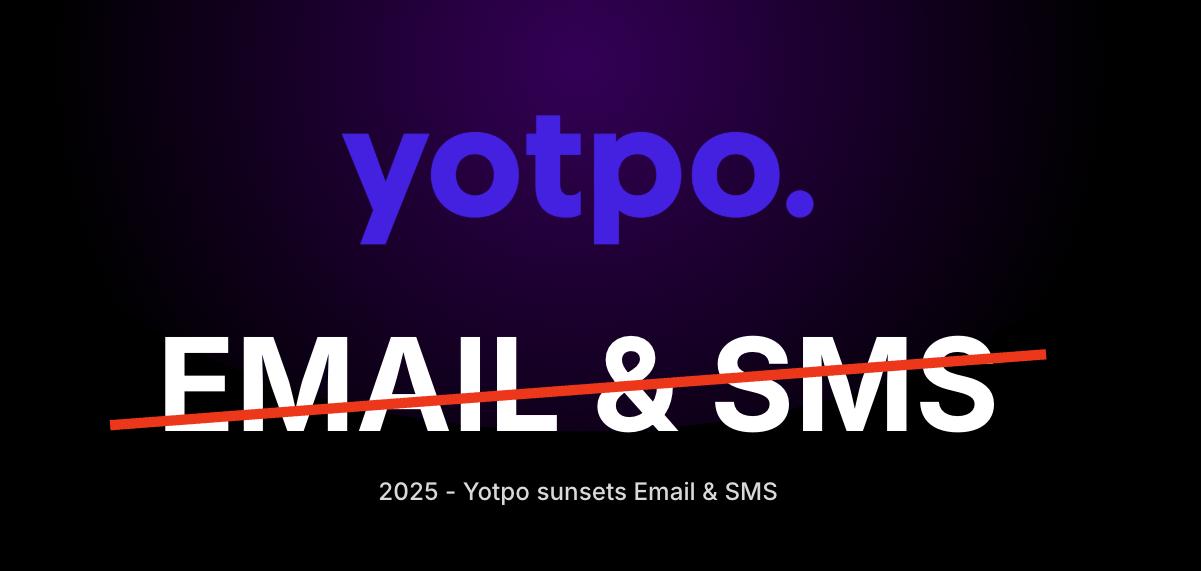
Yusuf Shurbaji
June 6, 2023
|
7
min read
The most effective marketing campaigns aren’t just the ones with flashy ads and stylish copy. They’re the ones that leverage social proof strategies to emphasize just how trusted your brand is compared to its competitors.
Not sure what social proof is, how it’s used in marketing, and how you can use it to drive sales? Let’s break down these questions and more with a detailed exploration.

Social proof is any kind of evidence you have that can prove that people have experienced your products or services and walked away happy.
This can involve:
In an ecommerce marketing context, social proof is highly important. After all, customers don’t have the opportunity to visit a brick-and-mortar retail store or interact with a salesperson face-to-face (at least most of the time). Therefore, what others say about your brand can heavily impact a new consumer’s decision to make a purchase or patronize your online shop.
Social proof in ecommerce marketing can take a variety of forms, ranging from customer testimonials to reviews and more. Each form of social proof, including customer reviews, influencer marketing testimonials, user-generated content (UGC), and so on, is based on the actions of others and can do a lot to make potential customers trust your brand more easily.
It’s no stretch to say that social proof is one of the most effective and important tools in your marketing toolkit.
That’s because people are more likely to purchase something from a brand that someone else has already used and vetted, particularly if that other person is someone they trust.
For instance, if you are an unknown brand and a new customer’s family members all recommend your business, they are much more likely to make a purchase or subscribe to your services. The reverse is true if your social proof is less than stellar or nonexistent.
Furthermore, social proof in ecommerce marketing can convey authority in your niche or industry. For example, a customer may find a testimonial from one of the experts in your industry or field, noting that your brand is good at what it does. When the customer reads that information, they’ll be more likely to trust your brand as a reliable partner or provider of solutions.
In essence, social proof is important because it uses the innate human desire to follow authority and trust what has already been tested. It’s a great way to acquire new customers, boost your conversion rate, and maximize sales growth through clever marketing integrations.

Luckily, you can learn how to use social proof in marketing in a variety of ways and formats. Just a few different types of social proof include:
When you combine many of these social proof elements, you’ll immediately increase your brand’s authority in your corner of the market.
Many of these forms of social proof drive the fear of missing out (FOMO) in first-time customers, and they can increase the number of customers coming to your homepage or landing page.

Now that you know what ecommerce social proof looks like, let’s break down some specific social proof in marketing examples. These will show you how social proof works in marketing overall.
Walmart wants to convince people to make purchases as often as possible. To accomplish that, it has a detailed, comprehensive ratings and reviews system, enabling previous purchasers of products to leave reviews of the products in question.
Not only does this help customers find the right products for their needs, but it reduces returns and dissatisfied customer purchases.
In this way, Walmart’s products gain authority (since consumers trust products they find that have positive ratings) and provide real value to its customers, ensuring they return to shop repeatedly.
This is the same kind of social proof as focusing on online reviews. Product reviews at third-party review sites showcasing satisfied customers are excellent forms of social proof marketing. High star ratings and positive reviews prove that the wisdom of the crowd says your brand is worth a prospective customer’s time and money.
Many review sites include share buttons to easily highlight bestsellers or top products.
Booking.com implements social proof by showing recent purchases on its website. When a customer or prospective traveler visits Booking.com to book tickets somewhere, they see recent purchases, proving that others are already using Booking.com for the same purpose.
This can be highly beneficial – if someone has never used Booking.com and is on the fence, they might be convinced to use the site for their travel accommodations if they see that others have already done so.
The Verge is a popular commentary and news website, so it only makes sense to lean into the social proof side of things with social media followers. More specifically, The Verge includes their number of social media followers on its core website.
This helps spread The Verge’s articles and news blogs far and wide, but it also highlights the fact that The Verge is a trusted, popular news organization. After all, intuitive human logic says that if The Verge has a high number of social media followers, it must be a good source of information.
Skillshare is an online educational platform where learners can check out online courses for a wide variety of topics. To boost brand authority, Skillshare displays the number of current customers it has serviced on its front page and many different course pages.
As a result, those considering taking a course from Skillshare are more likely to be swayed by the idea that others have already been educated here and benefited from the platform.
Amazon drives sales and demonstrates social proof in specific products by displaying low stock warnings for specific products.
If a product is highly rated but is almost out of stock, it could convince someone considering a purchase to go through with it before they miss out on their chance — especially if the product is on sale. This is a common sales tactic for many ecommerce shops and industries.
The online marketplace Etsy leverages social proof to drive sales and conversion by indicating how many users currently want a product viewed by a visitor. Someone might look at a homemade product and see an indicator on the side that says, “10 others are looking at this product.”
Not only does this drive sales similar to Amazon’s trick mentioned above, but it also highlights the fact that users can trust Etsy to inform them of item shortages and inventory alerts. All of that drives trust in the marketplace overall, helping to increase traffic, sales, and conversions.
The soft drink giant Pepsi is well known for its advertising campaigns that include celebrities, whether they are singing, dancing, or simply noting the praises of the soda. In any case, celebrity endorsements are often used by software companies like Pepsi to boost social proof.
People watch commercials or see online ads with their favorite celebrity sipping on a can of Pepsi, and they are inspired to do the same. They want to feel closer to their celebrities of choice – plus, anyone who hasn’t tried Pepsi before could be convinced to give the drink a shot if a well-known celebrity is guzzling it down on TV like it’s their favorite beverage.
Celebrity social proof can help build trust in your brand, so it should be a core component of your marketing strategy. With the right celebrity partnership, you’ll have plenty of happy customers browsing your product pages.
As you can see, social proof in marketing is highly important, and you should take a page out of the books of the brands above. When used properly and smartly, social proof can seriously optimize your conversion rate and drive sales for a long time to come.
Not sure where to start? Prismfly’s CRO specialists are well-equipped and the perfect people to contact to improve social proof on your website, such as by implementing testimonials or a dedicated review page. Contact us today to get started.

Yusuf Shurbaji
Co-Founder & Managing Partner
Yusuf Shurbaji has over a decade of ecommerce growth experience. His past work includes building optimization departments & running experimentation inhouse and agency side for Dior, JCPenney, LVMH, American Precious Metals Exchange, Princess Polly, Built Brands, Ladder Sport, Maze Group, HelloFresh, Ledger, Blockchain.com, Kind Snacks, and other 9-figure brands. Yusuf is a Co-Founder of Prismfly, a conversion rate optimization agency focused on growing revenue and EBITDA for D2C ecommerce brands. Prismfly is the first CRO focused Shopify Plus certified agency and has seen triple digit growth the past 2 years.
Yusuf Shurbaji





